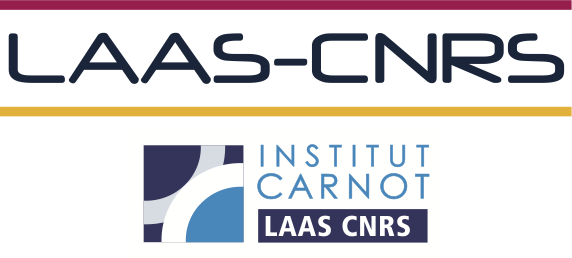The development of composite services poses very interesting challenges concerning their functional and NF requirements. On the one hand, a composite software system depends on the NF requirements of its constituting components in order to provide a satisfactory service to the user. On the other hand, the main issues for the fulfillment of QoS and service level agreements (SLA) are concerned with performance variability. Indeed, the QoS may evolve frequently, either because of internal changes or because of workload fluctuations. The performance and the robustness of the composite software system may be significantly improved by monitoring the execution of the components and by flexibly reacting to degradation and anomalies in a timely fashion.
The concept of adaptive and reconfigurable software systems has been introduced in order to describe architectures which exhibit such properties. An adaptive and reconfigurable software system can repair itself if any execution problems occur, in order to successfully complete its own execution, while respecting functional and NF agreements. In the design of an adaptive and reconfigurable software system, several aspects have to be considered. For instance, the system should be able to predict or to detect degradations and failures as soon as possible and to enact suitable recovery actions. Moreover, different NF requirements service levels might be considered in order to complete the execution in case of failure.
- Distributed and centralized collaborative solutions for the diagnosis and repair of software systems
- Design for the diagnosability and repairability
- Collaborative Management of NF requirements (quality, security, robustness, availability)
- Monitoring simple and composite architectures, components and services
- Semantic (or analytic) architectural and behavioral models for monitoring of software systems
- Dynamic reconfiguration of CB and SO architectures
- Collaborative planning and decision making
- Collaborative technologies for ensuring autonomic properties
- Predictive management of adaptability.
- Collaborative Management of autonomic properties
- Experiences in practical adaptive and reconfigurable CB and SO applications
- Tools and prototypes for managing adaptability of CB and SO applications
Decision Notification: March 27, 2015
Camera-Ready Submission : April 10, 2015
Authors must upload their paper as PDF file using the EasyChair submission system.

If any problem arises when submitting your paper, please contact: arosa2015@redcad.org
Each paper will be reviewed by at least three reviewers for ensuring high quality.
Slim Kallel, ReDCAD, University of Sfax, Tunisia
Ismael Bouassida Rodriguez , LAAS-CNRS and Université de Toulouse, France
| Takoua Abdellatif | University of Sousse, Tunisia |
| Yamine Ait Ameur | IRIT/INPT-ENSEEIHT, France |
| Mehmet Aksit | University of Twente, Nederland |
| Paris Avgeriou | University of Groningen, Nederland |
| Thais Batista | Federal University of Rio Grande do Norte, Brazil |
| Djamel Belaid | Institut TELECOM; TELECOM & Management SudParis, France |
| Djamal Benslimane | Lyon 1 University, France |
| Isabelle Borne | Université de Bretagne Sud, France |
| Cinzia Cappiello | Politecnico di Milano, Italy |
| Miriam Capretz | University of Western Ontario, Canada |
| Christophe Chassot | LAAS-CNRS, France |
| Anis Charfi | SAP Research, Darmstadt, Germany |
| Marco Comuzzi | City University London, UK |
| Carlos E. Cuesta | Rey Juan Carlos University, Spain |
| Marcos Da Silveira | CRP Henri Tudor, Luxembourg |
| Flavia Delicato | Federal University of Rio de Janeiro (UFRJ), Brazil |
| Elisabetta Di Nitto | Politecnico di Milano, Italy |
| Christophe Dony | LIRMM - Montpellier-II University, France |
| Letícia Duboc | State University of Rio de Janeiro, Brazil |
| Laurence Duchien | University of Lille, France |
| Schahram Dustdar | TU Wien, Austria |
| Mohammed Erradi | Ensias, Marocco |
| Bernd Freisleben | University of Marburg, Germany |
| Cristina Gacek | City University London, UK |
| Ian Gorton | Carnegie Mellon University, USA |
| Volker Gruhn | Universität Duisburg-Essen, Germany |
| Mohand-Said Hacid | Université Claude Bernard Lyon 1 - UCBL, France |
| Mohamed Hadj Kacem | University of Sfax, Tunisia |
| Hatem Hadj Kacem | University of Sfax, Tunisia |
| Ahmed Hadjkacem | University of Sfax, Tunisia |
| Wilhelm Hasselbring | Kiel University, Germany |
| Valerie Issarny | INRIA, France |
| Mohamed Jmaiel | University of Sfax, Tunisia |
| Dimka Karastoyanova | University of Stuttgart, Germany |
| Soufiene Lajmi | University of Sfax, Tunisia |
| Grace Lewis | Carnegie Mellon Software Engineering Institute, USA |
| José Carlos Maldonado | ICMC-USP, Brazil |
| Raffaela Mirandola | Politecnico di Milano, Italy |
| Francisco Moo-Mena | FMAT-UADY, mexico |
| Mohamed Mosbah | LaBRI - University of Bordeaux, France |
| Henry Muccini | University of L'Aquila, Italy |
| Elisa Yumi Nakagawa | University of Sao Paulo, Brazil |
| Flavio Oquendo | IRISA - University of South Brittany, France |
| Mourad Oussalah | LINA Laboratory, University of Nantes, France |
| Saul Pomares | INAOE, Mexico |
| Ilia Petrov | TU Darmstadt, Germany |
| Claudia Raibulet | University of Milano-Bicocca, Italy |
| Sakkaravarthi Ramanathan | E.G.S Pillay Engineering College, India |
| Philippe Roose | Université de Pau et des Pays de l'Adour |
| Cecilia Rubira | Institute of Computing, UNICAMP, Brazil |
| Salah Sadou | IRISA, University of South Brittany, France |
| Mohamed Sellami | Ecole des Mines, Nantes, France |
| Damián Serrano | University of Grenoble - LIG, France |
| Samir Tata | TELECOM SudParis, France |
| Chouki Tibermacine | LIRMM, CNRS,Montpellier II University, France |
| Qi Yu | Rochester Institute of Technology, USA |
| Uwe Zdun | University of Vienna, Austria |
| Haibin Zhu | Nipissing University, Canada |
slim.kallel@fsegs.rnu.tn
ReDCAD Reserach Unit
Department of Computer Science
Faculty of Economics and Managment of Sfax
B.P. 1173, Sfax, Tunisia
 |
Research Unit of Development and Control of Distributed Applications |
 |
Laboratoire d'Analyse et d'Architecture des Systèmes |